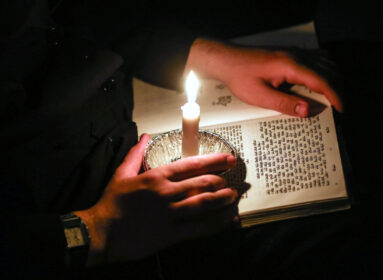
By the Ledger Editorial Advisory Board
During the 1930s, Americans wondered whether “it” – fascism – “could happen here.” A dozen years ago, the great American Jewish novelist Phillip Roth imagined that it did.
In The Plot Against America, acclaimed national hero and staunch isolationist Charles Lindbergh defeats Franklin Delano Roosevelt in the 1940 presidential election, paving the way for an alliance with Nazi Germany and a rising tide of violent antisemitism in the United States. Among the novel’s most compelling and evil characters is an unctuous rabbi named Lionel Bengelsdorf, who opportunistically supports Lindbergh, works to further his agenda, and becomes a regular visitor to the White House.
In the actual America of our time, the American Israel Public Affairs Committee (AIPAC) uses its annual spring conference to solidify the alliance between Washington’s political class and the State of Israel. The conference gives AIPAC the opportunity to demonstrate its heft. And it gives Israel-friendly politicians the opportunity to demonstrate their support for Israel – including, in presidential election years, via addresses by the candidates. In the past, some of the latter have spoken live before the plenum while others, citing campaign obligations, have been permitted to do so by video.
This, however, is no ordinary presidential election year.
As is the custom, invitations were sent to all the candidates, and four of the five still standing – Hillary Clinton, John Kasich, Donald Trump and Ted Cruz – appeared on the dais to deliver their affirmations of the unbreakable bond between the United States and Israel. The fifth, Sen. Bernie Sanders of Vermont, demurred because
of his campaign schedule but asked to address the plenum via satellite, as Mitt Romney and Newt Gingrich had done back in 2012. AIPAC turned him down.
The one Jewish candidate was thus prevented from joining AIPAC’s cavalcade of support for the Jewish state. But things took an even stranger turn when Donald Trump showed up.
Trump’s populist nativism, which has registered so well with angry blue-collar white voters, has stunned the Republican establishment. He hurls vile accusations against Mexicans, Muslims, and women; he encourages violence at his rallies; he threatens that there will be riots at the Republican convention if his nomination is somehow denied.
His hate-filled promise to “make America great again” resonates perfectly with neo-Nazis and white supremacists like David Duke. His shenanigans remind pundits of fascists past and present – Silvio Berlusconi, Benito Mussolini, even Adolph Hitler. No wonder many American Jews have been horrified by him.
In the days before his AIPAC appearance, the media was full of stories about threats to protest or to demonstrate disapproval by walking out. A group of 300 rabbis condemned his “bigotry, racism, xenophobia, and misogyny.” But condemnation was not what AIPAC had in store for Donald Trump.
He came, he talked, he conquered.
Even though he had famously described himself as “neutral” when it comes to the Arab-Israeli conflict, and had earlier that very day suggested that Israel ought to repay the United States for its generous foreign aid, Trump read a resoundingly pro-Israel speech from teleprompters and the crowd of 16,000 in the Washington Convention Center went wild. None of the drama that so many anticipated – incidents on the floor, videotape of security manhandling anti-Trump protestors, heckling – came to pass. It was the least disrupted reception Trump had received in weeks.
The event was a disgrace – an exercise in groveling before a would-be strong man straight out of the European past. But it happened here. Rabbi Bengelsdorf would have felt right at home.








 Southern New England Jewish Ledger
Southern New England Jewish Ledger









